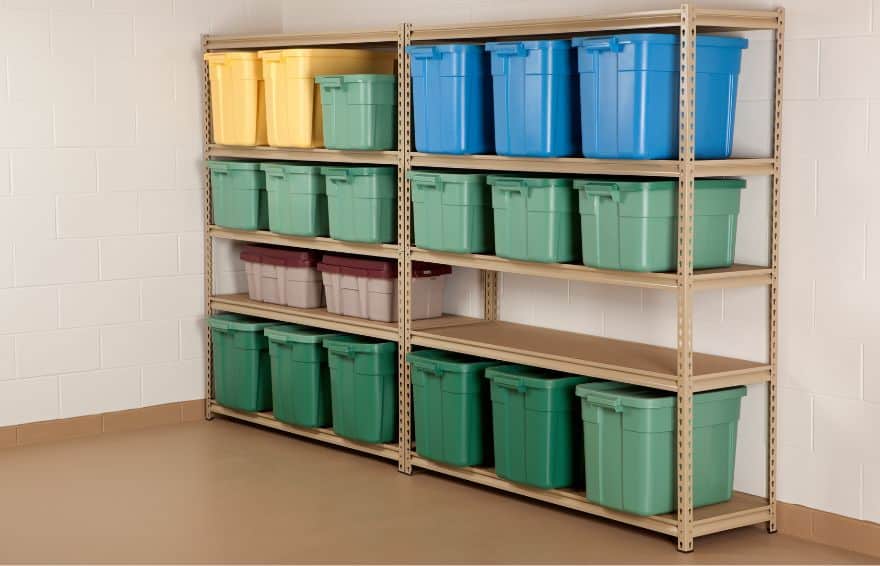Smart Strategies for Managing Business Inventory in Self Storage
Effective inventory management is such an important part today of the success of retail and lifestyle businesses. For many entrepreneurs and small business owners, self storage facilities offer a flexible and cost-effective solution for storing and organizing inventory. Whether you run an online store, a retail shop, or operate as a small contractor, self storage solutions can help streamline operations and enhance efficiency.
Let’s take a closer look at some smart strategies for managing business inventory in self storage units and also highlight some key considerations and benefits tailored to different business needs.
Types of Businesses That Can Benefit From Self Storage
Before we get into the question of the hour, “How do you manage inventory in self storage,” we need to take a quick look at what kind of businesses could really benefit from this.
Online Businesses
An eCommerce business often requires some extra space to store inventory, especially during peak sale times. Self storage units provide a scalable solution without the overhead costs of leasing additional office or warehouse space.
Retail Stores
Retailers can use self storage to store excess inventory, seasonal items, or promotional materials. It helps maintain a lean inventory at the store location while still ensuring quick replenishment capabilities.
Small Contractors
Contractors like plumbers, electricians, and construction workers have to store various equipment, tools, and materials. A self storage unit conveniently located near worksites is a great option and is secure.
Inventory Organization and Maintenance Strategies
Categorization and Labeling
Sort inventory items by type, seasonality, or frequency of use to facilitate easy retrieval and replenishment. Use clear, descriptive labels on shelves and storage bins to minimize search time and ensure accurate inventory tracking. You can also implement the use of item or SKU numbers to organize sequentially.
Optimizing Storage Space
Use shelving, racks, and stackable containers to maximize vertical space and create a systematic storage layout. Keep frequently accessed items at eye level or within easy reach. When storing less used items or bulk inventory, use the higher or lower shelves.
Regular Inventory Audits
Conduct periodic audits to reconcile physical inventory counts with digital records you have. If there are slow-moving or obsolete items, you can implement strategies like promotions or liquidation. Doing so helps you optimize your inventory turnover while also helping with storage space utilization.
Facility Features to Look For
Receiving and Delivery Services
Find a facility that offers package acceptance services. This feature can streamline operations and allow your business to manage incoming shipments directly from the storage unit. This reduces handling time and improves your inventory control.
Equipment and Tools
Make sure you have access to carts or dollies within the facility or buy your own to store in the unit. This simplifies the movement of heavy and bulky items. Ensure the facility you choose for your business inventory provides adequate conditions to facilitate safe and efficient loading and unloading operations.
On-Site Management
Facilities with on-site managers can often provide more immediate assistance along with enhanced security and oversight during hours of operation. The staff should be responsive and knowledgeable so they can address inquiries, resolve issues immediately, and ensure you have a smooth storage experience.
Access Hours and Security
Look at the hours and make sure they align with your business schedule, including weekends and holidays. You want a facility with strong security measures in place, like gated access, surveillance cameras, and well-lit premises to deter unauthorized access, vandalism, and theft.
Cost and Value Benefits
Flexible Lease Terms
Choose from short-term or long-term lease options based on seasonal inventory fluctuations, business expansion, or relocation needs you may have. You want to avoid any long-term commitments if it’s not in your plan and you want to be able to adapt your storage space requirements according to your evolving and growing business needs.
Scalability and Space Optimization
Scale your storage space based on business growth without incurring any additional overhead costs that you would find when leasing a larger commercial space. Optimize storage efficiency by implementing organizational strategies and utilizing available storage solutions.
Cost Savings
You can use a self storage unit to reduce operational costs and minimize expenses related to utilities, maintenance, and property taxes—all of the expenses often found with traditional warehouse spaces. Compare your potential cost savings and return on investment (ROI) against storage fees and warehouse lease costs.
Security and Protection
Access Control
You want a storage facility that is equipped with advanced access control systems, including personalized entry codes, electronic key fobs, and door alarms. Find ways to restrict unauthorized entry and access.
Climate-Controlled Units
Choose climate-controlled storage units to help safeguard your inventory from temperature fluctuations, humidity, and other environmental conditions. These self storage units allow you to protect your more valuable merchandise, electronics, documents, and perishable items by maintaining optimal storage conditions year-round.
Neighborhood Safety and Surveillance
When looking for a self storage unit for inventory, find a facility location in a safe area, ideally close to your home or office. Low-crime areas have a minimal risk of theft, vandalism, and property damage. See if there is perimeter fencing, security cameras, and exterior lighting to enhance security.
Additional Tips for Managing Business Inventory in Self Storage
Inventory Tracking Systems
It helps to use inventory tracking systems to maintain accurate records of stock levels, locations within the storage unit, and item details.
Rotation and Accessibility
Implement a FIFO (First In, First Out) or FEFO (First Expired, First Out) inventory rotation system to ensure older stock is used or sold before newer arrivals.
Documentation
Again, it is so important to maintain detailed documentation of inventory stored in self storage units, including item descriptions, quantities, purchase dates, and storage locations. Regularly update the documentation to reflect inventory changes and adjustments so your records stay as accurate as possible.
Backup and Disaster Preparedness
Always have backup plans and disaster preparedness strategies in place to protect your valuable inventory from unforeseen events like natural disasters, fires, or security breaches. Invest in insurance coverage tailored to protect inventory stored in self storage units against potential risks or losses.
Conclusions
Effective inventory management is important for optimizing operational efficiency, reducing costs, and supporting business growth. Self storage offers your business a versatile solution that ensures more flexible storage options, streamlined logistics, and enhanced inventory control.
How do you manage inventory in self storage? We hope our tips and strategies have helped.
Contact EZ Storage today to review our unit size guide and find the best option for your business storage needs. We have three Boston metro locations for you to choose from, including Framingham, Natick, and Newton.





